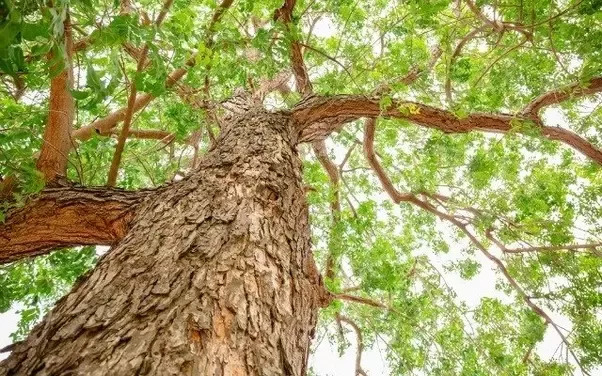Our elders in our family often boast about the properties of the Neem plant and its use to treat various physical diseases. Ever since the COVID-19 pandemic has started neem is being considered as one of the ayurvedic treatments for the disease. But does our reliable old Neem tree have any chances of protecting against it?
Well, a recent study has suggested that this may be actually possible! According to new study conducted by scientists at the University of Colorado Anschutz Medical Campus and the Indian Institute of Science Education and Research Kolkata, extract from the bark of the Neem tree may help treat and decrease the spread of virus. The study was published in the journal, ‘Virology’.
For thousand years the Neem tree that is indigenous to India is famous for its anti-parasitic, anti-bacterial and antiviral properties. The bark extract has helped to treat malaria, stomach and intestinal ulcers, skin diseases and many other diseases. The main focus of the Neem bark is on the wide range of viral proteins, significant its potential as an antiviral agent against emerging variants of COVID-19 (including SARS-CoV-2), the study found.
The study co-author Maria Nagel, MD, research professor in the department of neurology and ophthalmology at the University Of Colorado School Of Medicine on the CU Anschutz Medical Campus, “The goal of this research is to develop a Neem-based medication that can reduce the risk of serious illness when someone is infected with coronaviruses.”
“We hope that scientists won’t have to continuously develop new therapies every time a new SARS-CoV-2 variant emerges,” she said.
“Just like how we take penicillin for strep throat, we envision taking the Neem-based drug for COVID, allowing us to resume our normal lives without fear of hospitalization and death.”
The scientists examined the impact of the bark extract against coronaviruses in their laboratories. The researchers in India have tested the animal models and showed that it had antiviral properties against coronavirus. Using computer modeling, the researchers prophesied that Neem bark extract will bind to the SARS-CoV-2 spike protein at different locations, preventing virus entry to host cells.
At CU Anschutz, Nagel’s lab tested the Neem bark extract in SARS-CoV-2 human lung cells. It proved as effective as a preventive drug for infection and also decreased virus replication and spread after infection.
“The next step in our research is to identify the specific components in Neem bark extract that are antiviral. Because these components bind to various regions of SARS-CoV-2, we believe that it will be effective on emerging variants with spike mutations,” said Nagel.
“We will then determine the formulation of dosage for an antiviral drug to treat coronavirus infections.” The scientists said this research could guide new antiviral therapeutic efforts to combat the ongoing pandemic while holding out the promise for treating new coronavirus strains.

